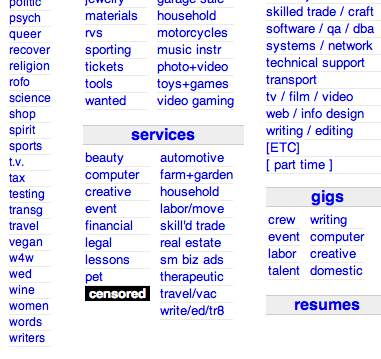I Want You To Want Me
I Want You to Want Me by Jonathan Harris and Sep Kamvar made me think: it’s a huge, goddamn lonely digital universe out there. It feels like, as researchers (and people) we’ve just launched an exploration into a new...
 Last month a friend was planning a trip to the U.S and while trawling Craigslist for a short-stay apartment in New York she commented on her growing wariness of...
Last month a friend was planning a trip to the U.S and while trawling Craigslist for a short-stay apartment in New York she commented on her growing wariness of...